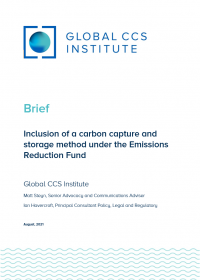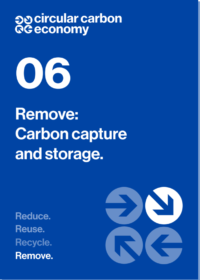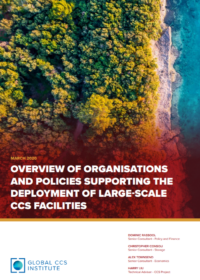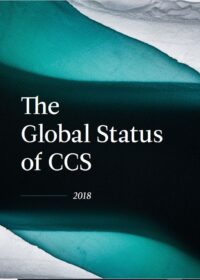Resources
Publications
Our publications, reports and research library hosts over 500 specialist reports and research papers on all topics associated with CCS.
View our Publication Library Disclaimer.
Filter by
An ESG Reporting Methodology to Support CCS-Related Investment
9th June 2022
Topic(s): CCS finance, CCS policy, Environmental social and governance (ESG)
The ESG reporting landscape remains dynamic and there is an increasingly clear opportunity for both project proponents and investors to leverage ESG frameworks for the deployment of CCS in pursuit of decarbonisation. However, while there are few barriers to reporting CCS-specific activities within an organisation’s climate risk mitigation activities, questions remain about the quality and utility of this information.
This thought leadership report from the Institute builds upon previous analysis, to consider in greater detail how project proponents and investors may leverage the benefits of their CCS-related investments and project operations, in the context of the wider reporting environment. The Institute has developed a CCS-specific methodology, highlighting potential pathways for the reporting of CCS activities within current ESG schemes and reporting regimes. This non-prescriptive approach aligns with the six high-level themes identified within leading existing schemes and is in-line with feedback received from a variety of stakeholders on consolidation and harmonisation.
Disclaimer
The content within the Global CCS Institute Publications, Reports and Research Library is provided for information purposes only. We make every effort and take reasonable care to keep the content of this section up-to-date and error-free. However, we make no claim as to its accuracy, currency or reliability.
Content and material featured within this section of our website includes reports and research published by third parties. The content and material may include opinions and recommendations of third parties that do not reflect those held by the Global CCS Institute.
Inclusion of a CCS Method Under the Emissions Reduction Fund
12th August 2021
Topic(s): Australia, CCS policy
The Emissions Reduction Fund (ERF) is the carbon crediting scheme in Australia through which the Federal Government purchases lowest cost carbon abatement from a range of sources. The fund looks to provide a market-based mechanism that encourages the pursuit of general emissions reductions within the broader context of climate mitigation.
In 2020 the Australian Government’s Low Emissions Technology Statement identified carbon capture and storage (CCS) as one of several priority low emissions technologies. At the request of the government and against the backdrop of emerging projects, the Clean Energy Regulatory began developing a CCS method (or methodology) under the Emissions Reduction Fund. Inclusion under the ERF would allow CCS projects to generate Australian Carbon Credit Units (ACCUs) and thereby generate income.
This brief from Senior Advocacy and Communications Adviser, Matt Steyn, and Principal Consultant Policy, Legal and Regulatory, Ian Havercroft, explains what the Emissions Reduction Fund is, examines how it works and explores the the inclusion of CCS as a methodology.
Disclaimer
The content within the Global CCS Institute Publications, Reports and Research Library is provided for information purposes only. We make every effort and take reasonable care to keep the content of this section up-to-date and error-free. However, we make no claim as to its accuracy, currency or reliability.
Content and material featured within this section of our website includes reports and research published by third parties. The content and material may include opinions and recommendations of third parties that do not reflect those held by the Global CCS Institute.
Unlocking Private Finance to Support CCS Investments
28th June 2021
Topic(s): CCS finance, CCS policy, Thought Leadership
One model aligned with the goals of the Paris Agreement, the International Energy Agency's Sustainable Development Scenario (IEA-SDS) requires 15% of the world’s emissions reductions to be achieved using CCS. The need for CCS in the IEA-SDS translates to a 100-fold increase in CCS capacity by 2050, for which this thought leadership report estimates the total capital requirement to be between US$655 bn and US$1,280 bn.
The report discusses the role of governments in creating an enabling investment environment for CCS and makes several recommendations for how to unlock private finance for projects.
The report examines:
- The potential for project finance to greatly accelerate investment in CCS capacity
- The application of green bonds to CCS projects in hard-to-abate sectors such as cement, fertilisers and chemicals
- The potential for climate finance to support CCS deployment in developing countries
Disclaimer
The content within the Global CCS Institute Publications, Reports and Research Library is provided for information purposes only. We make every effort and take reasonable care to keep the content of this section up-to-date and error-free. However, we make no claim as to its accuracy, currency or reliability.
Content and material featured within this section of our website includes reports and research published by third parties. The content and material may include opinions and recommendations of third parties that do not reflect those held by the Global CCS Institute.
Surveying the U.S. Federal CCS Policy Landscape in 2021
4th May 2021
Topic(s): Carbon capture and storage (CCS), CCS policy, Domestic policy, Policy law and regulation
2021 is proving to be a busy year for CCS policy in the United States. With the year not yet one third over, Members of the House of Representatives and Senate had already introduced five bipartisan bills that aim to accelerate the deployment of CCS. This brief details the contents of those bills and explains the rationale behind their policy proposals.
More broadly, though, Senior Advocacy & Communications Adviser, Matt Bright, uses this brief to examine the three pillars of CCS policy that undergird the advance of this technology in the U.S. In addition, this brief gives the reader a grand tour of U.S. CCS policy history from its inception to the present day in order to paint a complete picture of how strong policy can accelerate the deployment of CCS. In this way, the U.S. CCS policy landscape can be viewed as a lens to magnify the challenges and opportunities that lie ahead for global CCS deployment in the coming decades.
Disclaimer
The content within the Global CCS Institute Publications, Reports and Research Library is provided for information purposes only. We make every effort and take reasonable care to keep the content of this section up-to-date and error-free. However, we make no claim as to its accuracy, currency or reliability.
Content and material featured within this section of our website includes reports and research published by third parties. The content and material may include opinions and recommendations of third parties that do not reflect those held by the Global CCS Institute.
Carbon Removal with CCS Technologies
26th January 2021
Topic(s): Carbon capture and storage (CCS), Carbon removal, CCS policy, Negative emissions technologies, Policy law and regulation
With the transition to a low-carbon economy steadily underway, CCS is becoming recognised as a tool that complements the wide array of climate approaches being utilised to reach climate neutrality. The role of emission reductions and removals in the mitigation of climate change will change over time. It is widely agreed that emission reductions should be prioritised on the pathway to net zero. This, however, will change once net zero emissions are achieved; net zero is a point on the journey, not the final destination. Carbon removal will become the main driver of climate ambition in the second half of the century.
In this brief, Senior Policy Advisor with the Global CCS Institute, Eve Tamme, explains the dual role of CCS in climate change mitigation, and provides an overview of the two technological carbon removal approaches that use CCS: bioenergy with carbon capture and storage (BECCS) and direct air capture with carbon storage (DACCS). Along with highlighting the varied applications of CCS, this brief also includes a summary of ongoing challenges and opportunities tied to carbon removal related policy development.
Disclaimer
The content within the Global CCS Institute Publications, Reports and Research Library is provided for information purposes only. We make every effort and take reasonable care to keep the content of this section up-to-date and error-free. However, we make no claim as to its accuracy, currency or reliability.
Content and material featured within this section of our website includes reports and research published by third parties. The content and material may include opinions and recommendations of third parties that do not reflect those held by the Global CCS Institute.
Remove: Carbon Capture and Storage
2nd November 2020
Organisation(s): Global CCS Institute
Topic(s): Carbon capture and storage (CCS), CCS policy
Ahead of the 2020 G20 summit, the Global CCS Institute was asked to contribute to the Circular Carbon Economy (CCE) Guide, organised by KAPSARC. In a report titled 'Remove: Carbon Capture and Storage', Alex Zapantis assesses the value of CCS as an effective climate mitigating technology that aims to remove CO2 from the atmosphere and support the establishment of a circular carbon economy.
The report was discussed during a live webinar hosted by KAPSARC.
To read the report in full, click download below.
Disclaimer
The content within the Global CCS Institute Publications, Reports and Research Library is provided for information purposes only. We make every effort and take reasonable care to keep the content of this section up-to-date and error-free. However, we make no claim as to its accuracy, currency or reliability.
Content and material featured within this section of our website includes reports and research published by third parties. The content and material may include opinions and recommendations of third parties that do not reflect those held by the Global CCS Institute.
Overview of Organisations and Policies Supporting the Deployment of Large-Scale CCS Facilities
30th June 2020
Organisation(s): Global CCS Institute
Topic(s): CCS policy
While there are currently relatively few CCS facilities in operation and in development, there are significant differences in the enabling environments for CCS deployment. This report explores the potential role of Delivery Bodies to help enable the deployment of CCS. It also provides an overview of the organisations involved in the deployment of large-scale CCS facilities, and the policy and regulatory frameworks that have supported this deployment.
Disclaimer
The content within the Global CCS Institute Publications, Reports and Research Library is provided for information purposes only. We make every effort and take reasonable care to keep the content of this section up-to-date and error-free. However, we make no claim as to its accuracy, currency or reliability.
Content and material featured within this section of our website includes reports and research published by third parties. The content and material may include opinions and recommendations of third parties that do not reflect those held by the Global CCS Institute.
Global Status of CCS Report: 2018
10th December 2018
Organisation(s): Global CCS Institute
Topic(s): Carbon capture and storage (CCS), CCS policy, CO2 hubs, CO2 storage, CO2 transport
The Global Status of CCS Report 2018 documents the status of CCS around the world and significant operational milestones over the past 12 months. It demystifies common misunderstandings about the technology and identifies where and how it can, and must, be more widely deployed. It also tracks the worldwide progress of CCS technologies and the key opportunities and challenges CCS faces.
Disclaimer
The content within the Global CCS Institute Publications, Reports and Research Library is provided for information purposes only. We make every effort and take reasonable care to keep the content of this section up-to-date and error-free. However, we make no claim as to its accuracy, currency or reliability.
Content and material featured within this section of our website includes reports and research published by third parties. The content and material may include opinions and recommendations of third parties that do not reflect those held by the Global CCS Institute.







